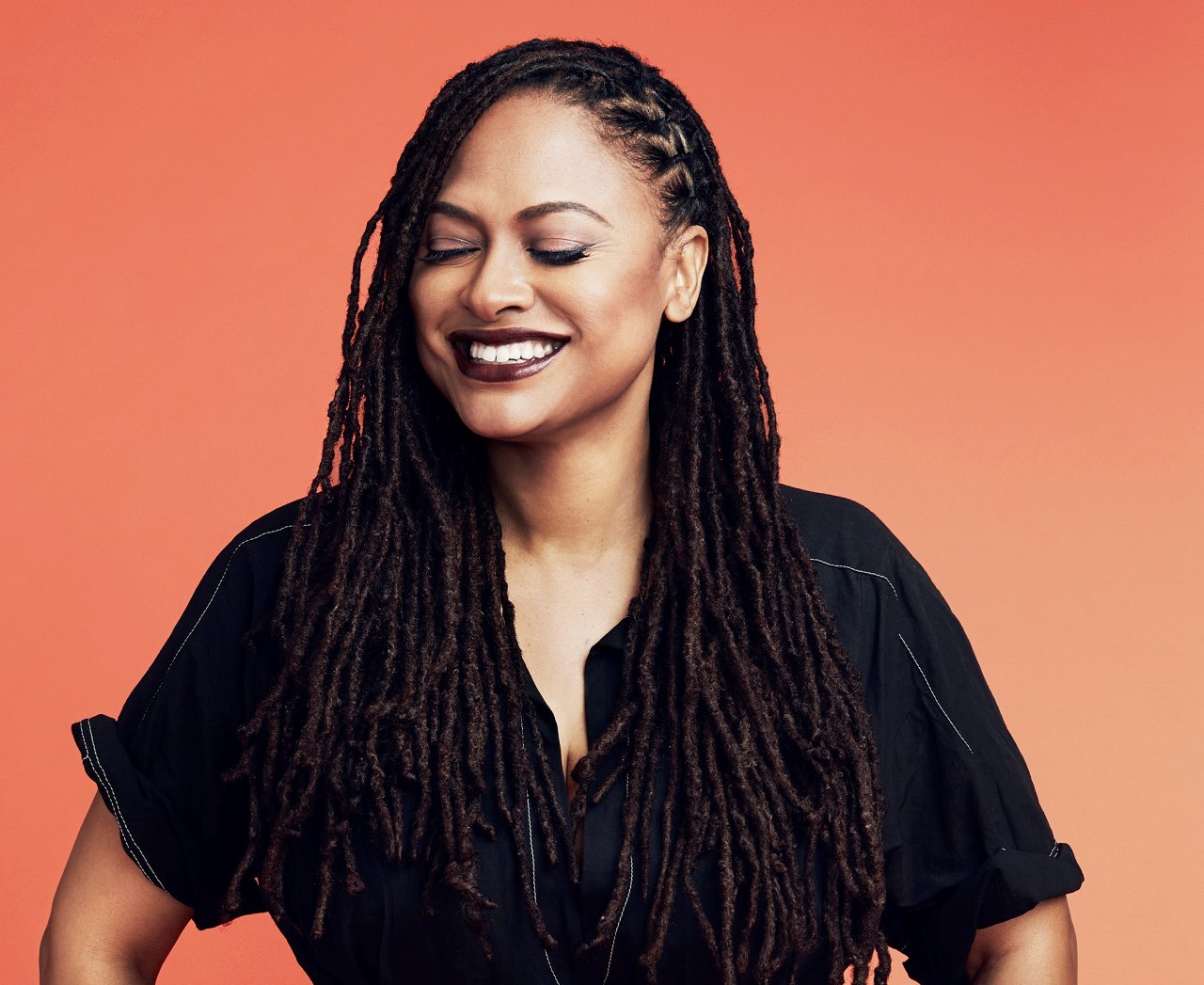For this month’s #WomenWednesdays posts we’ll be spotlighting the work of four Black female filmmakers who have made history with their pioneering, trailblazing and fearless work within the film industry, for #BlackHistoryMonth.
 Image credits © Ava DuVernay
Image credits © Ava DuVernay
First up this month is Ava DuVernay, one of the most significant female filmmakers in modern history. DuVernay has an impressive array of accolades and awards, as well as being the ‘first’ Black woman to achieve many filmmaking milestones in the 21st century.
As the first Black woman to win the directing award at the 2012 Sundance film festival for her feature, ‘Middle of Nowhere’, about a struggling nurse living in Compton, DuVernay was also the first Black woman to be nominated for the Golden Globe Award for Best Director and Academy Award for Best Picture for her iconic 2014 feature ‘Selma’, which tells the story of the 1965 voting rights marches, led by Martin Luther King Jr. More recently, in 2018, DuVernay added another historical recognition to her belt, becoming the first Black woman to direct a live-action film with a budget over $100 million. The Disney produced ‘A Wrinkle in Time’ also made DuVernay the first Black female to helm a film which grossed over $100 million at the US Box Office.
 NBC News.jpg) Image credits ©NBC News
Image credits ©NBC News
While forging the trajectory of history for Black women in film, DuVernay’s work often centers around stories of racial injustice. DuVernay originally started out interning as a journalist before moving into the film industry, and her keen interest in current affairs is evidenced by the fact that she has directed as many documentaries as fictional feature films. Her Netflix documentary feature ‘13th’ explores the prison system in the US, and its systemic mistreatment and wrongful incarceration of African Americans through the Thirteenth Amendment. The documentary was nominated for the Academy Award for Best Documentary Feature in 2017 and saw a surge in viewership by over 4,000% in June 2020 during the George Floyd protests. Speaking to The Atlantic about the making of the doc, DuVernay highlighted the importance of linking the past with the present:
 IndieWite.jpg) Image credits © Indie Wire
Image credits © Indie Wire
DuVernay’s miniseries ‘When They See Us’, also for Netflix, continues the theme of racial injustice in the American prison system by telling the heartbreaking true story of the Central Park Five. The series is a tale of racial profiling, police brutality, and media misinformation over a 25-year period. As with ‘13th’, the lessons of this historically based series reach into the present day and continue the theme of social justice in DuVernay’s work. Speaking about the series, DuVernay conceives it as the culmination of her previous work, to date:
 Los Angeles Magazine.png) Image credits © Los Angeles Magazine
Image credits © Los Angeles Magazine
DuVernay also founded her own production and distribution company in 2010, called ARRAY, which focuses on elevating films made by women and those from ethnic minority backgrounds. With ARRAY, DuVernay is setting up the infrastructure within the film industry that ensures that underrepresented groups can continue to tell stories from a place of strength, support and empowerment. She is creating and continuing a movement that is helping to change how films are made, and who gets to make them. Speaking about her independence and singular vision within filmmaking, DuVernay said:
Ava DuVernay has solidified her place in film history with her incredible work and her dedication to uplifting marginalized voices and stories within the industry. Stay tuned for next weeks’ installment of #WomenWednesdays, where we’ll be continuing to look into the life and work of Black female filmmakers to mark #BlackHistoryMonth.

